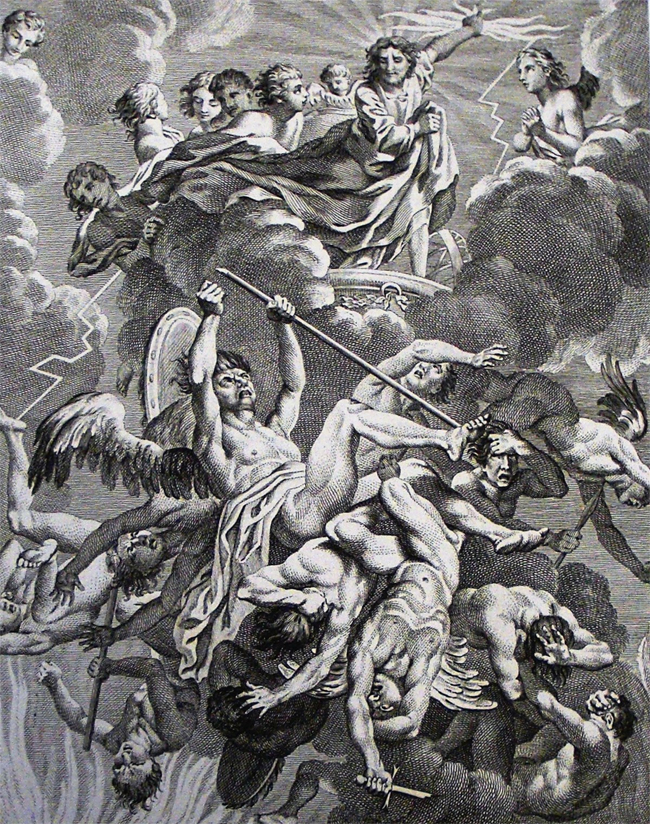Christian Art | A Boy At Prayer With Jesus And The Eucharist
Office Of Readings | Eastertide Week 4, Tuesday | A Reading From The Sermons Of Saint Peter Chrysologus | By God’s Sacrifice And His Priest
‘By God’s sacrifice and his priest.’
Each Christian As Priest And Sacrifice | A Reflection On Saint Peter Chrysologus
In his homily on Romans 12:1 – ‘I appeal to you… to offer your bodies as a living sacrifice, holy and pleasing to God’ – Saint Peter Chrysologus delivers a striking call to every Christian: not only to follow Christ but to become a priest and a sacrifice. Drawing deeply from early Christian theology, scriptural tradition, and the liturgical life of the Church, Chrysologus offers a spiritual vision of the Christian life that is both challenging and empowering.
Christian Priesthood | Baptismal Identity And Vocation
Chrysologus’s statement that ‘each one of us is called to be both a sacrifice to God and his priest’ is a bold articulation of the universal priesthood of all the baptized. Rooted in 1 Peter 2:9, which calls Christians ‘a royal priesthood’, and echoed in the writings of other Church Fathers like Tertullian and Origen, this idea stresses that priesthood is not limited to the ordained but is a shared vocation of the faithful.
At baptism, a Christian is incorporated into the body of Christ—the one true High Priest—and receives the Spirit, which enables them to offer spiritual sacrifices acceptable to God. Chrysologus connects this to Romans 12:1, interpreting the offering of one’s body not in a literal sacrificial sense but as a conscious, living dedication of the whole person—mind, body, and will—to God.
The Meaning Of Sacrifice | From Temple To Temple Of The Heart
In the Old Testament, sacrifice involved external rituals: animals, fire, altars, and blood. These rites were meant to express inward devotion and repentance. But in Christ, these external forms are transformed and interiorized. As Chrysologus explains, it is no longer goats or oxen, but ourselves that we are to offer.
This sacrificial self-offering is not a single dramatic act, but a continual practice. It involves resisting sin, exercising charity, enduring suffering with patience, and living in holiness. These spiritual disciplines become a new kind of ‘altar’, one that resides within each believer. The Christian offers his or her own life, sanctified by Christ, as the material of sacrifice.
Vesting For The Sacrifice | Interior Preparation
Chrysologus draws on vivid liturgical imagery. He urges the believer to ‘become an altar of God’, to ‘clothe himself with the robe of holiness’, and to ‘gird himself with the belt of chastity’. These images reflect the priestly vesting before liturgy in the early Church, but they are given spiritual meaning. The ‘robe of holiness’ is not linen, but a life shaped by the Gospel. The ‘belt of chastity’ signifies integrity and purity of heart.
The Christian must not approach God’s altar (whether the Eucharist or life itself) casually. Just as the Levitical priests prepared themselves with ritual purification, the baptized must be inwardly prepared, offering themselves with ‘the incense of prayer’ and ‘the sword of the Spirit’—a reference to Ephesians 6, the ‘armour of God’.
The Altar Is Your Heart | The Inner Sanctuary
Central to Chrysologus’s message is the interiorization of worship. The Christian no longer needs to travel to the Temple in Jerusalem to offer sacrifice. The heart itself becomes the altar; the conscience, the sanctuary. This fits with broader early Christian trends, especially post-Temple destruction (70 AD), that emphasized internal holiness over external ritual.
The believer who presents his life as a holy offering does so not just for personal sanctification but as a witness and intercession for the world. In this way, the Christian mirrors Christ, the one true Priest who offers himself for the life of the world.
Spiritual Priesthood And Daily Life | A Theology Of Action
Chrysologus insists this priesthood is not theoretical. It is activated by love, obedience, and concrete actions. Drawing from 1 John 2:4, he reminds us that knowing God is not a matter of words or knowledge alone, but keeping his commandments. The ‘sacrifice’ of our life is expressed in:
- Forgiving enemies
- Serving the poor
- Rejecting selfish pleasures
- Living chastely and generously
- Persevering through suffering
This daily pattern of living becomes the Christian’s liturgy—a life lived in worship.
Eucharistic Overlap | Priesthood And The Mass
Although Chrysologus does not focus directly on the Eucharist here, his language points unmistakably toward it. The Eucharist is where Christ offers himself in an unbloody manner and where the faithful unite their own sacrifices with his. Thus, Chrysologus’s vision helps Christians see that every Mass is not only Christ’s offering, but theirs too.
When the priest says, ‘Pray, brothers and sisters, that my sacrifice and yours may be acceptable to God,’ he is echoing this theology: that each believer participates in the priesthood of Christ by offering their lives along with the sacramental offering of bread and wine.
Destination | Conformed To Christ The Priest
The ultimate goal of this priestly and sacrificial life is union with Christ, the one who offered himself ‘once for all’ (Hebrews 10:10). As the believer becomes more conformed to Christ, he or she shares not only in his suffering and self-gift, but also in his resurrection and glory.

A Reading From The Sermons Of Saint Peter Chrysologus | By God’s Sacrifice And His Priest
I appeal to you by the mercy of God. This appeal is made by Paul, or rather, it is made by God through Paul, because of God’s desire to be loved rather than feared, to be a father rather than a Lord. God appeals to us in his mercy to avoid having to punish us in his severity.
Listen to the Lord’s appeal: In me, I want you to see your own body, your members, your heart, your bones, your blood. You may fear what is divine, but why not love what is human? You may run away from me as the Lord, but why not run to me as your father? Perhaps you are filled with shame for causing my bitter passion. Do not be afraid. This cross inflicts a mortal injury, not on me, but on death. These nails no longer pain me, but only deepen your love for me. I do not cry out because of these wounds, but through them I draw you into my heart. My body was stretched on the cross as a symbol, not of how much I suffered, but of my all-embracing love. I count it no less to shed my blood: it is the price I have paid for your ransom. Come, then, return to me and learn to know me as your father, who repays good for evil, love for injury, and boundless charity for piercing wounds.
Listen now to what the Apostle urges us to do. I appeal to you, he says, to present your bodies as a living sacrifice. By this exhortation of his, Paul has raised all men to priestly status.
How marvellous is the priesthood of the Christian, for he is both the victim that is offered on his own behalf, and the priest who makes the offering. He does not need to go beyond himself to seek what he is to immolate to God: with himself and in himself he brings the sacrifice he is to offer God for himself. The victim remains and the priest remains, always one and the same. Immolated, the victim still lives: the priest who immolates cannot kill. Truly it is an amazing sacrifice in which a body is offered without being slain and blood is offered without being shed.
The Apostle says: I appeal to you by the mercy of God to present your bodies as a living sacrifice. Brethren, this sacrifice follows the pattern of Christ’s sacrifice by which he gave his body as a living immolation for the life of the world. He really made his body a living sacrifice, because, though slain, he continues to live. In such a victim death receives its ransom, but the victim remains alive. Death itself suffers the punishment. This is why death for the martyrs is actually a birth, and their end a beginning. Their execution is the door to life, and those who were thought to have been blotted out from the earth shine brilliantly in heaven.
Paul says: I appeal to you by the mercy of God to present your bodies as a sacrifice, living and holy. The prophet said the same thing: Sacrifice and offering you did not desire, but you have prepared a body for me. Each of us is called to be both a sacrifice to God and his priest. Do not forfeit what divine authority confers on you. Put on the garment of holiness, gird yourself with the belt of chastity. Let Christ be your helmet, let the cross on your forehead be your unfailing protection. Your breastplate should be the knowledge of God that he himself has given you. Keep burning continually the sweet smelling incense of prayer. Take up the sword of the Spirit. Let your heart be an altar. Then, with full confidence in God, present your body for sacrifice. God desires not death, but faith; God thirsts not for blood, but for self-surrender; God is appeased not by slaughter, but by the offering of your free will.

Glossary Of Terms
Universal Priesthood
The Christian belief that all baptized people share in the priesthood of Christ and are called to offer spiritual sacrifices, such as prayer, good works, and holy living—not just ordained clergy.
Baptism
The sacrament of Christian initiation that involves water and the Holy Spirit. It cleanses sin, unites the person to Christ, and incorporates them into the Church.
Romans 12:1
A verse where Saint Paul urges Christians to ‘offer your bodies as a living sacrifice, holy and acceptable to God’, forming the foundation for much of this homily’s theology.
Sacrifice
In the Christian context, giving something of value to God. Christ’s death is the ultimate sacrifice, and Christians are called to imitate him by offering their lives in love and obedience.
Temple (Old Testament)
The central place of worship for ancient Israel, where animal sacrifices were offered. After its destruction, early Christians shifted emphasis to internal, spiritual worship.
Conscience
The inner sense of right and wrong that guides moral behaviour. In this context, it is where the Christian offers their ‘interior’ sacrifice to God.
Chastity
A virtue involving sexual purity and integrity appropriate to one’s state in life—whether celibacy or fidelity in marriage. More broadly, it means undivided love for God.
Ephesians 6
A passage where Saint Paul describes the ‘armour of God’, including the ‘belt of truth’ and ‘sword of the Spirit’ (which is the Word of God), used here metaphorically for spiritual readiness.
Liturgy
The Church’s formal public worship, especially the Eucharist. Chrysologus speaks of life itself becoming a ‘liturgy’ when lived as a sacrifice to God.
Eucharist
The central Christian sacrament in which bread and wine become the Body and Blood of Christ. The faithful are invited to unite their own lives to Christ’s offering in this act.
Unbloody Sacrifice
A phrase used to describe the Eucharist—Christ’s sacrifice made present sacramentally without being repeated physically.
Conformed To Christ
A key Christian idea that believers are called to become more like Jesus in mind, heart, and action—especially in love and self-sacrifice.








